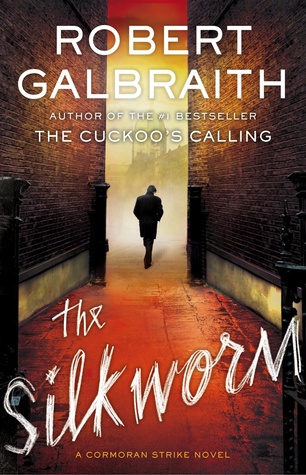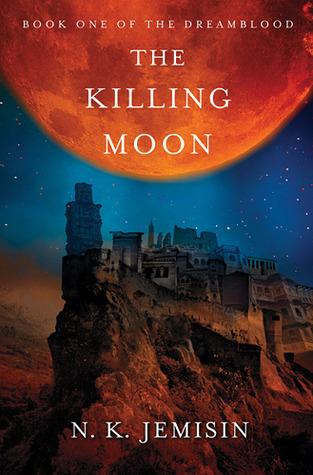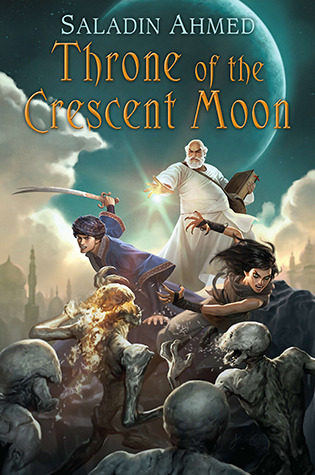The good news is that this year, I read a lot of books.
The bad news is that most of them were for external obligations, not for the straight enjoyment of it. That always casts a shadow on reading, because it's hard to savour some prose when at the back of your mind you're thinking, "Gah! I'm only halfway through this thing and I've got eight more books to go after this!"
It gets worse if those "eight books to go", plus other obligatory lists, are outside one's normal genres to read in. Left to my own devices, I mostly read science fiction and mysteries, with some non-fiction, fantasy, historical, and literary fiction mixed in. This year, I mostly read literary fiction, because that was what populated the majority of those aforementioned lists. I find myself siding with the camp, mostly of SF fans, who call literary fiction "domestic fiction". In fact, I'd switch over to that term exclusively except that so few other people would know what I'm talking about. It's not that I don't like literary fiction — I did wind up enjoying a number of these obligatory novels, despite the pressure to read through them promptly — it's just that the more I read them, the less I understand why literary fiction is considered both deeper and more neutral than so-called genre fiction. Literary fiction has a tendency to portray people and relationships — family, friends, romantic attachments — in a certain light, with certain cultural signifiers attached, and say, "this is normal; you can relate to this; now here's the extraordinary part" while at the same time being wholly alienating (to me). Science fiction and mystery stories say, "here's the extraordinary thing" and then let you orient yourself into the story with the signposts you recognise.

A quick note on The Martian: I had my paperback copy of The Martian all pulled out and flipped to a reference page when I started this post, and then decided not to put it in the list. Not because I didn't love it, because I did, both the film (which I saw first) and the novel. I liked the pop culture references, and the way it reminded me of Daniel Defoe's Robinson Crusoe (of course), both in the "castaway" plot and the amount of prose spent showing the math and working out things. People think showing the math was invented for hard science fiction, but that's because not enough people read both hard science fiction and Daniel Defoe. And not enough CP Snow, for that matter, but I digress.
I wound up leaving it out, though, because... it's problematic. It's plausibly problematic, which is to author Andy Weir's credit, but it opens a whole can of problematic worms about where "nerd" ends and "asshole" begins, and while I think it's great that it does that, it deserves its own blog post. I should write that. I should write lots of things.
Anyways, here's this year's list. Fiction first, then non-fiction.
Persuasion by Jane Austen

I reviewed Persuasion last March as part of a different group reading & blogging event. I always like Austen, even when her characters are annoying me, like they do in Emma. For all that people love to make fun of Austen fans, for all the jokes about Darcy and formal dining room manners, Austen's actual work has almost painfully incisive observations about the human condition. She spends a lot less time describing ladies' dresses than her modern-day detractors do. I'd even argue that Austen is more important to read now — her psychological observations hold true even though the world has changed, and put paid to the "oh, but technology" arguments condoning poor behaviour.
Persuasion is particularly compelling, because it spends more time than some of Austen's other novels showing how easy it was to lose one's place in the gentility, how easy it was to become destitute and cast out. For all the gentle social outings described, it depicts a harshness one doesn't often see in a novel categorised as a "romance".
Here's the extraordinary thing: if a woman was stuck with an unsupportive family, if she was browbeaten into refusing just one marriage proposal, she was at real and serious risk of becoming homeless and destitute, because all other options for supporting herself either paid very poorly or were illegal.
The Cuckoo's Calling/The Silkworm, Robert Galbraith

I always said JK Rowling would be fabulous at writing mysteries, so when it was revealed she was doing just that under the pen name Robert Galbraith, I was thrilled. I think the magic and wizard-jargon and other world-building details from her fantasy books made people forget (or not notice?) that she's a very sharp observer of human nature. She's in Austen's literary lineage in that sense, I suppose — both of them can depict character so accurately it makes the reader wince a bit, then turn it this way for a humorous effect, or that way for pathos.
Cormoran Strike, the detective protagonist of both novels (I haven't read the third one released this past autumn), is the kind of barely-hanging-on yet incredibly capable character mystery readers have seen before in Sam Spade and Kurt Wallander. Strike's own personal life is often a spectacular mess, which contrasts beautifully with his adept way of determining the truth.
I'm recommending the first two books as one here, but The Silkworm will be of particular interest to writers, given that the murder victim is an author and all of the suspects are writers or otherwise connected to the publishing business.
The Killing Moon, NK Jemisin

NK Jemisin has been on my to-read list for at least two years, and now that I've read one of her books, I definitely want to read more. I know she's been a target of the people behind the various Hugo Puppies slates, and I have to wonder if they've actually read any of her work, because they claim to prefer the science fiction and fantasy genre as it "was" in some version of the past or another, and The Killing Moon, to me, is very classic fantasy. It reminded me a lot of the fantasy books I read in the 80s and 90s, though the books were all published in the 70s.
The Killing Moon takes place in a world modelled after (but not identical to) the Nubian reign of ancient Egypt. I love watching archaeology documentaries on ancient Egypt, so I got hooked very quickly. In fact, reading this book got me into watching videos about the real-life ancient Nubians.
Like Anne McCaffrey's Dragonsong series, The Killing Moon is a novel which reads as fantasy, but as I understand from the author's afterword, the fantastic setting does have a science fiction backstory supporting it. Certainly the worldbuilding is very complete and compelling — it's easy to imagine other characters yet unknown, on other adventures in other realms of the same world.
The central characters in The Killing Moon all belong to a state-sanctioned religious order which... let's just say their central tenets do not match very well with the Abrahamic ones we're used to taking for granted in the Western world. It was fascinating to read of the characters working through decisions and actions based on a moral code which was alien to the industrialised world. Favourite detail: in the city which serves as the main setting, it is illegal to have buildings with doors to shut off rooms, because that makes it more difficult for the official priest class to steal into residents' bedrooms at night... and kill those sleeping within for ritual purposes. The wonder of it is, Jemisin convincingly portrays it, when done with the right intent and methods, as a caring, considerate act. It's a sublime empathic experience for a reader.
The use of magic in the story is, like the world-building, logical and immersive. I don't remember reading anything in the afterword about the science behind the magic, but it wouldn't surprise me at all if there was some.
Throne of the Crescent Moon, Saladin Ahmed

This is such a hard novel to describe. Batman meets 1,001 Arabian Nights is probably the closest, but that falls very short. It's an incredible adventure in a very classic vein — I could see it as a filmed adventure series like they used to show in cinemas in the 30s and 40s — but there's this undercurrent of sadness to it, of despair, so when the funny parts happen (and they are hilarious) it feels a bit like the reader is, like the characters, laughing to distract themselves from the calamitous ending of an era.
But over that sadness, lots of adventure happens. Swashes are buckled, magical beasts vanquished, enchanted potions drunk. One thing I appreciated is that instead of being relegated to obscure, Yoda-type mentoring, the older characters are all front and centre. They may be too old and stiff for this adventuring stuff, but if evil threatens their city, they're going to go down fighting, damnit. The younger characters (and they're present and involved as well) are also important, but they bring a different focus. That that, Joseph Campbell.
The Art of Asking, Amanda Palmer

I am not part of the legions of stalwart Amanda Palmer fans. Some of her songs I like a lot; others I don't. When I agree with her, I agree with her completely, but I don't always agree with her.
In The Art of Asking, though, Palmer isn't asking the reader to agree with her all the time, or give her everything she asks for. She's just asking us to learn how to ask for help when we need it, learn how to give help when someone else needs it. That might sound very basic, but as much as she's known for being a forward-thinking artist, it almost feels like the book is asking us to remember something which seems to have been lost along the way: the idea that a social interaction can be mutually beneficial, the idea that, as social animals, human beings do need to work together. My favourite part was when Palmer described how, the whole time Thoreau was living by Walden pond and writing about self-sufficiency and isolation, his family would drop by once a week and give him a batch of their home-made doughnuts.
I listened to the audiobook version, and this is one time I strongly recommend listening to a book instead of reading it. The audiobook has all sorts of extra aural goodies, mostly in the form of songs at the ends of major sections. It's part autobiography, part manifesto, part call to action. What action? You'll have to ask yourself.
Here's the TED talk Palmer gave which led to her writing this book:
Creativity, Inc., Ed Catmull

By my estimation, there are approximately fifteen gazillion business books out there, out of which about fourteen gazillion are about productivity and work culture. They all range from overly narrow to just plain wrong.
Creativity, Inc. is the history of Pixar, from Ed Catmull's initial research into computer animation when he was a student, to Disney's acquisition. Catmull himself outlines in an early chapter what makes it different from other management books. Most business books crow about the successes of the author, and claim that if you copy them, you'll be successful too — except it seems they're never quite applicable to the situation you find yourself in. Instead, Catmull gives example after example of all the things he, Pixar management, and Pixar in general did wrong, and then goes over the consequences of the mistake and what happened to make things better again. A lot of what he presents is counter-intuitive to current corporate thinking, but he argues for why the Pixar approach is better. And no, he doesn't just say, "we've had a string a hit movies — even the duds had good box office returns".
Maybe it's his software development background coming out, but the case studies and framework Catmull depicts are applicable well outside the constraints of a computer animation film company. He's talking about how to work a problem, about attitudes, about creating an environment where people are truly safe to speak up when they see a better way of doing things. And, oddly enough for someone with no formal business education and who works in a very specialised industry, his ideas make way more sense than anything I've read in other business books. A lot of what's in Creativity Inc. would apply to a volunteer group or a one-off, family-based project (say, a major home renovation) just as equally as it would to the for-profit working world.
Along the way the reader gets a behind-the-scenes look at the creation of some already-classic films, and some refreshing observations on what it was like to work with Steve Jobs. Catmull's depiction of Jobs — appreciative and respectful, but nowhere near a hagiography — feels far more realistic than a lot of the other material out there.